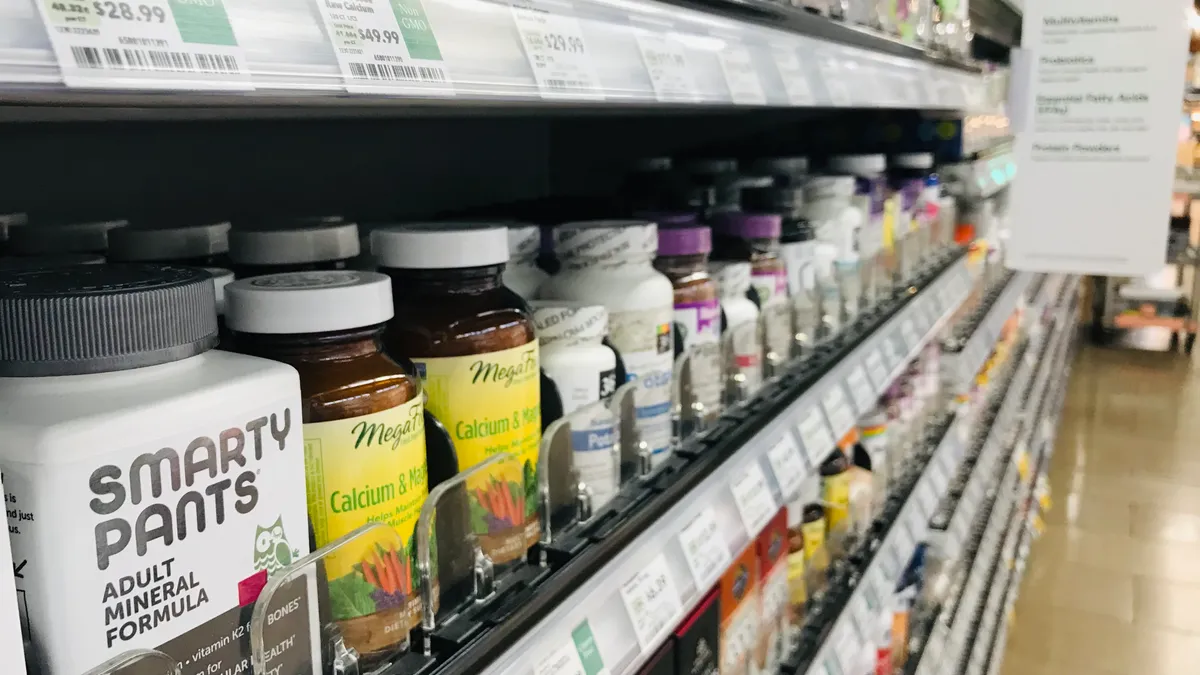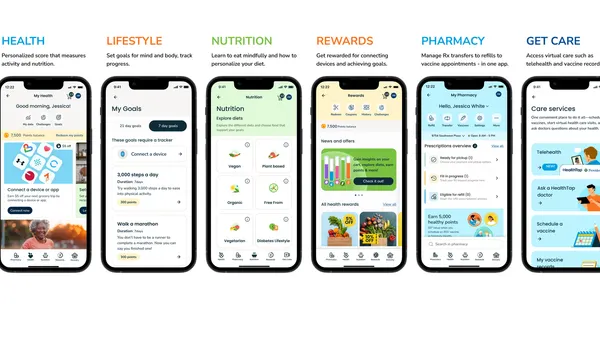Dive Brief:
- Food retailers are more closely linking their stores’ brand propositions to health and well-being, according to a new report from the Food Industry Association (FMI).
- In a survey of 27 food retailers representing more than 26,000 stores, 85% of respondents — up from 54% in 2019 — said they view programs and offerings catering to people’s health as among the competitive factors for store brands when vying for customer loyalty.
- FMI’s 2021 Retailer Contributions to Health and Well-being report indicates retailers’ will continue their efforts, with 69% of respondents saying the industry may see significant business growth by tapping into health-conscious offerings.
Dive Insight:
Retailers’ new efforts to focus on health and nutrition have been wide-ranging in the past year. Hy-Vee, Albertsons and Walmart have named new hires to health and wellness leadership roles, while Natural Grocers brought its nutrition education programs online. Heinen's launched a health membership program, and Raley’s has been expanding its healthy-foods-focused O-N-E Market format.
Half of the food retail respondents to FMI's survey reported significantly or moderately boosting their health-conscious offerings since 2019, and a majority (84%) said they have a health and well-being strategy in place, up from 49% in 2019.
Among their efforts, health education, like providing a pharmacy locator, COVID-19 vaccination information or a way to submit questions to a dietitian online, is a key focus, the report found. Of the companies surveyed, 65% said they employ registered dietitians corporately and 31% have them in stores or working virtually. Other roles to promote health include nutritionists (31%), health educators (8%), diabetes health educators (31%) and fitness trainers (8%).
The report also said food retailers have added or boosted virtual offerings and used multi-channel marketing to promote initiatives during the pandemic. The focus is not just on meeting shoppers’ demands: Many are offering healthy recipes, health screenings, meal planning resources, well-being classes and other benefits to their employees.
Food retailers are poised to focus more on nutrition, overall health, self-care, preventive care and emotional well-being going forward, FMI said. As companies become increasingly strategic with their approaches to health and well-being, FMI recommends they reset their strategies because COVID-19 increased focus on some aspects of health, like at the pharmacy, than on others. The trade group also suggests retailers seek more community engagement, collaboration and prevention measurements going forward.
FMI also said a diversity of roles is key to staying on target when seeking consumers. “It’s crucial that dietitians and pharmacists are at the strategic decision-making table, but other leaders from across the store need to be on board as well,” the report said. “There’s also an opportunity to bring experts from both nutrition and pharmacy even more into the broader retail health and well-being discussion.”
Retailers have a chance to combine health-conscious efforts with personalized tools. Researchers from the University of Minnesota School of Public Health recommended in a newly published study three online tools: a “healthy shopping” preference setting, a healthy meal planning tool and a calculator determining the nutritional quality of items in shopping carts.












